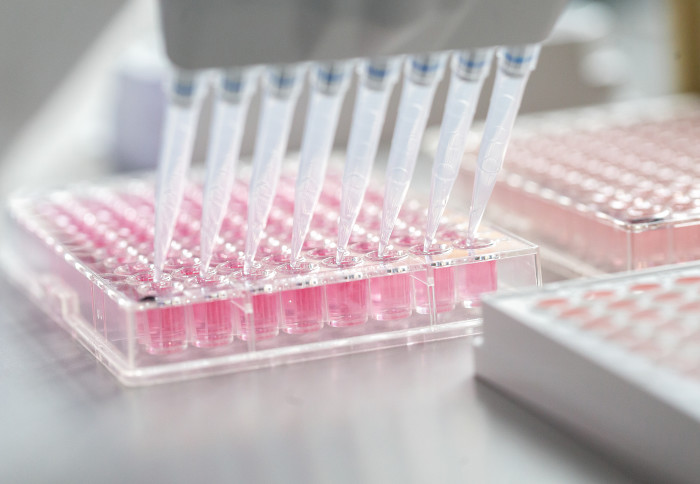Imperial RNA technology to be developed by VaxEquity with AstraZeneca
by Ryan O'Hare

Imperial startup VaxEquity has announced a strategic, long-term research collaboration with AstraZeneca to develop its self-amplifying RNA technology
Biopharmaceutical company AstraZeneca will invest in VaxEquity to develop and commercially apply its self-amplifying RNA (saRNA) technology.
"The prospect of further therapeutic applications adds to this technology’s great potential.” Professor Robin Shattock Founder of VaxEquity
VaxEquity was founded in 2020 by Imperial's Professor Robin Shattock and Morningside Ventures to develop transformative RNA therapeutics using its next generation saRNA platform.
The collaboration lays the foundations for a lasting legacy for UK science, building on the success of Imperial’s response to the pandemic, and will explore how the cutting edge saRNA technology can be optimised and applied across various therapy areas, such as infectious diseases, oncology and respiratory.
Professor Robin Shattock, Head of Immunology of Infection within the Department of Infectious Disease at Imperial College London, and founder of VaxEquity, said: “We have all seen how technologies based around RNA have been fundamental to preventing ongoing severe disease and death in major global pandemics. The prospect of further therapeutic applications adds to this technology’s great potential.”
Advancing Imperial's RNA platform
Imperial’s saRNA platform is based on temporary genetic code, called messenger RNA, which can be used to train the immune system to recognise and respond to threats, such as a virus.
RNA-based platforms have been used successfully in a number of licensed vaccines for COVID-19. However, saRNA is different in that once injected into muscle, the RNA message makes copies of itself (‘self amplifies’), generating more of the original message. This means it can produce consistent and strong immune responses at a fraction of the dose of other RNA vaccines.
 As part of the collaboration, AstraZeneca will aim to develop and optimise the saRNA platform and apply it to a range of disease areas. The agreement will support VaxEquity with research and development funding for up to 26 drug targets.
As part of the collaboration, AstraZeneca will aim to develop and optimise the saRNA platform and apply it to a range of disease areas. The agreement will support VaxEquity with research and development funding for up to 26 drug targets.
Michael Watson, Executive Chair of VaxEquity, said, “We are delighted to collaborate with AstraZeneca given its strong track record in innovation and welcome them as a new investor. We are also grateful to the ongoing support of our existing investor, Morningside Group. With our self-amplifying RNA platform, we aim to underpin the next generation of RNA-delivered medicines enabling not only vaccines but also a broad range of therapeutic applications.”
Lasting legacy
Imperial College London has been central to the global scientific response to COVID-19, including modelling that has informed UK and international policy, insights into community infection and immunity (REACT studies), a world-leading COVID-19 human challenge study, and assessing treatments in hospitalised patients (REMAP-CAP), as well as investigating the lasting impacts of long COVID. ?
Professor Alice Gast, President of Imperial College London, said: “I am deeply proud of my colleagues’ work in pioneering self-amplifying RNA technology. This collaboration will help realise our ambition of building a lasting legacy from the great scientific advances Imperial made in this pandemic.”
Article text (excluding photos or graphics) © Imperial College London.
Photos and graphics subject to third party copyright used with permission or © Imperial College London.
Reporter
Ryan O'Hare
Communications Division